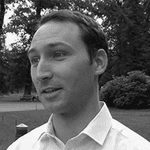Event Recording:
Putting the “net” in net zero, nearly all scenarios for climate stabilisation involve not only the reduction of emissions, but also the removal of carbon dioxide from the air.
As net zero ambition spreads around the world, attention is rapidly turning to novel technological approaches to removal, as well as more established natural approaches such as planting trees.
What are the different ways to remove carbon dioxide from air? How much potential do they have, and how can we scale them up? Perhaps most importantly, will negative emissions be a vital addition to action on emissions or a costly distraction? Join Tim Kruger, Programme Manager of the Oxford Geoegineering Programme, in discussion with Dr Steve Smith, Executive Director of Oxford Net Zero, in this fifth instalment of the Oxford Net Zero series.

Tim Kruger
Programme Manager, Oxford Geoengineering Programme
Tim leads a group across the University of Oxford exploring proposed geoengineering techniques and the governance mechanisms required to ensure that any research in this field is undertaken in a responsible way.
He has investigated in detail one potential geoengineering technique, that of adding alkalinity to the ocean as a way of enhancing its capacity to act as a carbon sink and to counteract the effects of ocean acidification.
He is also a co-author of the Oxford Principles – a set of draft principles for the conduct of geoengineering research, which have been adopted as policy by the UK government.

Dr Steve Smith
Executive Director, Oxford Net Zero
Dr Steve Smith joins the Smith School of Enterprise and the Environment from the UK Department for Business, Energy and Industrial Strategy (BEIS) where he co-led the Climate Science Team for two years. He played a key role in the legislation of the Net Zero emissions target last year, and on developing the Government's approach to greenhouse gas removal. As well as advising ministers and policy teams he oversaw several areas of climate research, including the Met Office Hadley Centre Climate Programme, the Greenhouse Gas Removal Programme co-funded with UKRI, and understanding of carbon sources and sinks on land for the UK emissions inventory.
Before joining BEIS, Steve was Head of Science at the Committee on Climate Change. There he was involved in setting the UK's 2050 target and carbon budgets, as well as starting up the committee's work on climate adaptation. He gained a PhD in atmospheric physics from Imperial College London after studying Physics at Oxford. He is a fellow of the Royal Meteorological Society and of the Cambridge Centre for Science and Policy.
Keep in touch
If you found this page useful, sign up to our monthly digest of the latest news and events
Subscribe